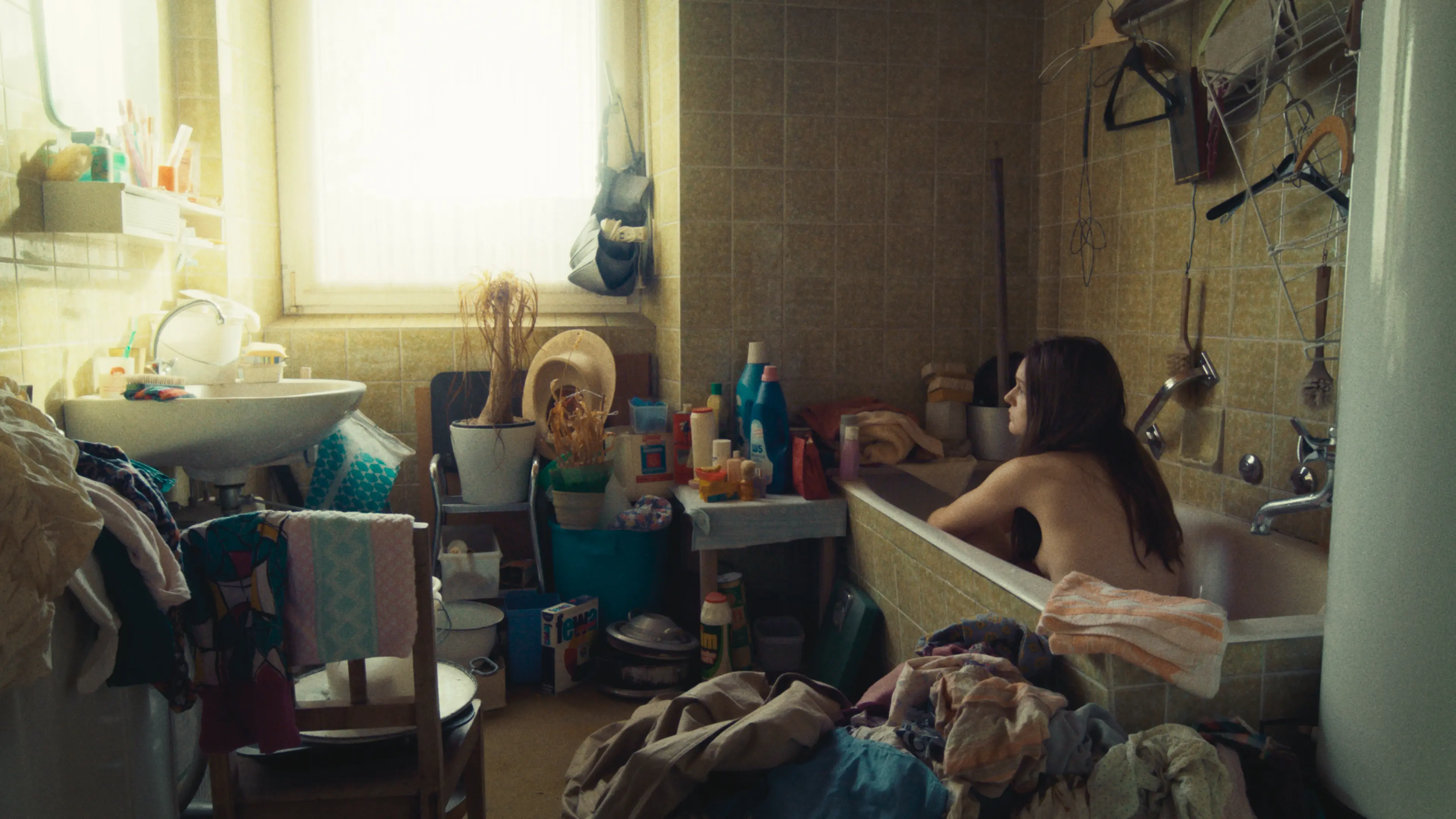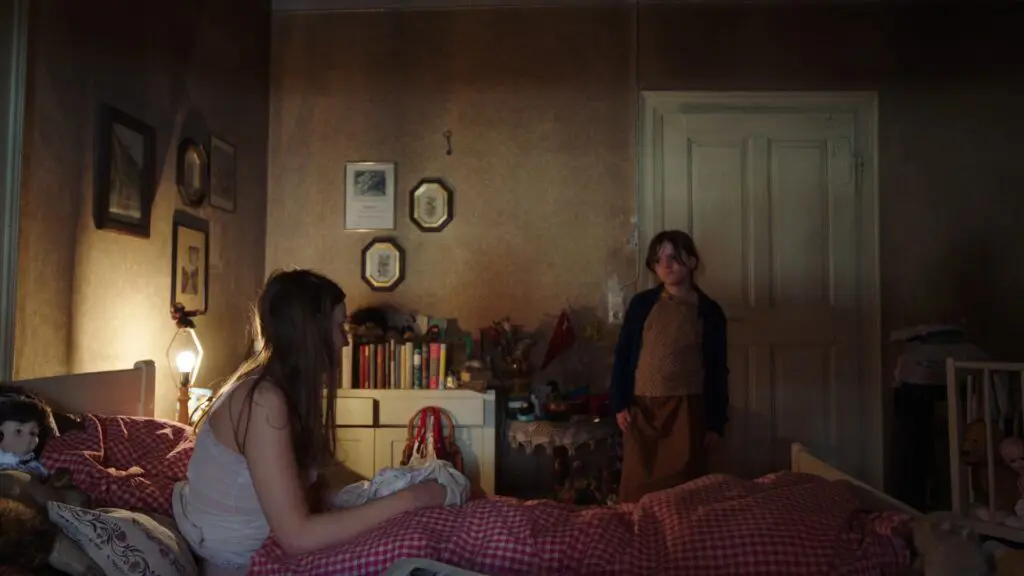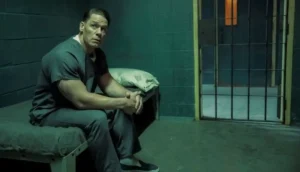Summary
Eighty minutes of a young girl disintegrating in the lack of warmth from her family. Beautifully produced and performed, but I don’t understand the point.
In Time of Moulting, aka Fellwechselzeit, Stephanie (Zelda Espenschied/Miriam Schiweck) lives with her Mother (Freya Kreutzkam) and Father (Bernd Wolf) in seventies Germany. Through a series of short scenes, taken from two periods, ten years apart, we see how she gradually recognises her family as odd and uncomfortable and then stiflingly unhealthy. At least I think that’s what it’s about.
Mother is hard work; perhaps unwell, perhaps unbalanced, perhaps apathetic. Stephanie and Father are clearly bonded to her with loyalty rather than any affection. Father is worse, alternately insulting and ignoring Stephanie. But Time of Moulting is all about Stephanie. We see her first as a child, about eight years old, precocious and pushing boundaries hard because she can see those boundaries are hard: she doesn’t go anywhere, and friends aren’t allowed in the house to play. Zelda Espenschied is a remarkable young actor, appearing resilient and emotionless as I’ve never seen in a child. Then ten years later, we see that the oppressive atmosphere is driving Stephanie to despair.

The house this family inhabits (“lives in” would be going too far) is just as much a character as Stephanie and her parents are. We see very little of its exterior, so it’s unclear what size it is, but every room is so full of clutter, papers and clothing that it surely feels smaller than it is. Except for the attic, that is: up there, Stephanie explores butchery knives and memories from earlier times. The set must have been assembled with some passion for the period, and it wouldn’t surprise me if it was also inspired by an unhappy home in writer/director Sabrina Mertens’ background.
The way that Time of Moulting presents this micro-history, with many short scenes barely stitched together, is almost like flicking through a scrapbook instead of watching a film. This too suggests to me that it may relate to Mertens’ own life and if so it’s a brave and ambitious endeavour. But although I can see and admire a good deal of what she is doing in this work, I cannot see why she has done it. There is virtually no plot, and although the performances are sharp enough that it’s not difficult to relate to at least some of the characters, it’s impossible to like them. It was painful – nay, painfully miserable – to listen to a family who clearly hated being stuck in the same house and yet apparently determined to put each other through the same Hell.
I don’t understand why Mertens’ wanted to show us this. There doesn’t seem to be any message, no glimmer of hope or even a clear target for resentment. I have to wonder whether there is a social or historical context that I am missing: there are hints at unsavoury elements to Stephanie’s grandfather’s history, but far too subtle for my sheltered/English upbringing.
Fellwechselzeit is one of the five features screening at this year’s Final Girls Berlin Film Festival.




